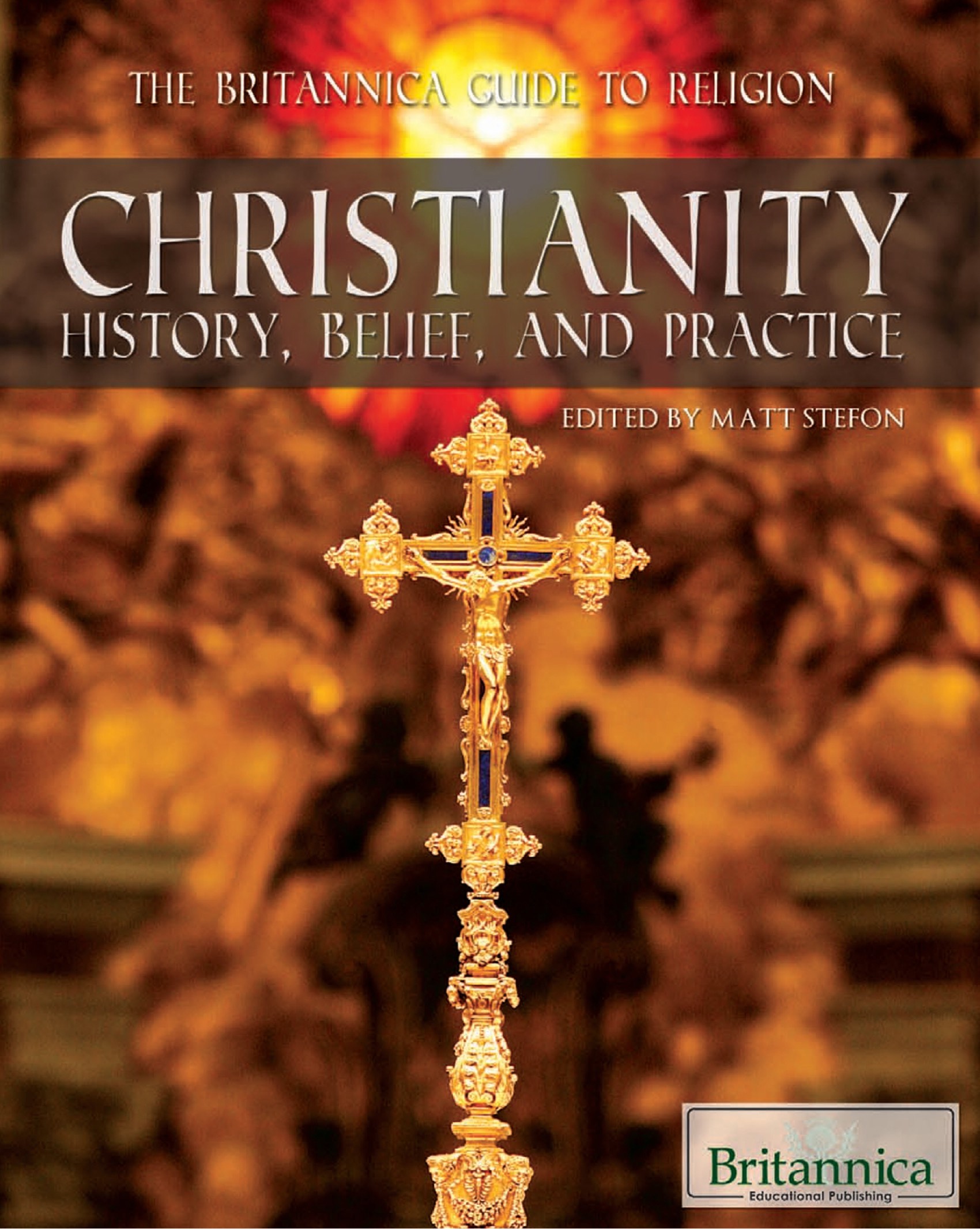BRITANNICA GUIDE TO CHRISTIANITY
The Britannica Guide to Christianity provides an in-depth exploration of Christianity’s history, beliefs, practices, and major branches. The book covers the origins of Christianity, its development, key theological doctrines, and its influence on global culture and politics.
1. Origins and Core Beliefs
• Christianity began as a movement within Judaism in the 1st century CE, centered around Jesus of Nazareth.
• Jesus was regarded as the Messiah (Christ) and believed to be both divine and human.
• The Resurrection of Jesus and his teachings about salvation, love, and the Kingdom of God became the foundation of Christian faith.
• The concept of the Holy Trinity (Father, Son, and Holy Spirit) is central to Christian doctrine.
2. Historical Development
Early Christianity (1st–4th Century CE)
• Spread throughout the Roman Empire, initially facing persecution.
• The Council of Nicaea (325 CE) established key doctrines, including the Nicene Creed.
• The Roman Empire adopted Christianity as the state religion under Emperor Constantine.
Medieval Christianity (5th–15th Century)
• Rise of the Papacy: The Pope became the central authority of the Catholic Church.
• The Great Schism (1054 CE) led to the split between the Roman Catholic Church and the Eastern Orthodox Church.
• The period saw the Crusades, missionary expansion, and theological development.
Reformation and Protestantism (16th Century)
• Martin Luther’s 95 Theses (1517) initiated the Protestant Reformation, challenging Catholic doctrines.
• Key Protestant movements: Lutheranism, Calvinism, Anglicanism, and Anabaptists.
• The Catholic Counter-Reformation responded with reforms and reaffirmed Church authority.
Modern Christianity (17th Century–Present)
• Expansion to the Americas, Africa, and Asia through colonial missions.
• Rise of Evangelicalism, Pentecostalism, and fundamentalist movements.
• Ecumenical movements sought Christian unity in the 20th and 21st centuries.
3. Christian Doctrine
• Scripture & Tradition: Christianity relies on the Bible (Old & New Testaments).
• Salvation & Grace: Belief in redemption through Jesus’ sacrifice.
• Sacraments: Practices such as baptism, Eucharist (communion), and confession vary across denominations.
4. Christian Denominations
• Catholicism: The largest branch, with the Pope as its leader.
• Eastern Orthodoxy: Centered in Eastern Europe and the Middle East, emphasizing tradition and icons.
• Protestantism: A diverse movement emphasizing scripture alone (sola scriptura) and salvation by faith.
• Pentecostalism & Evangelicalism: Emphasizing personal faith, the Holy Spirit, and missionary work.
5. Christianity’s Influence on the World
• Shaped Western civilization, art, philosophy, and law.
• Played a role in political movements, including the abolition of slavery and civil rights.
• Continues to influence ethics, social justice, and global humanitarian efforts.
Conclusion
The Britannica Guide to Christianity presents Christianity as a diverse, evolving, and globally significant religion. It explores its theological foundations, historical transformations, and ongoing influence in shaping the modern world.
